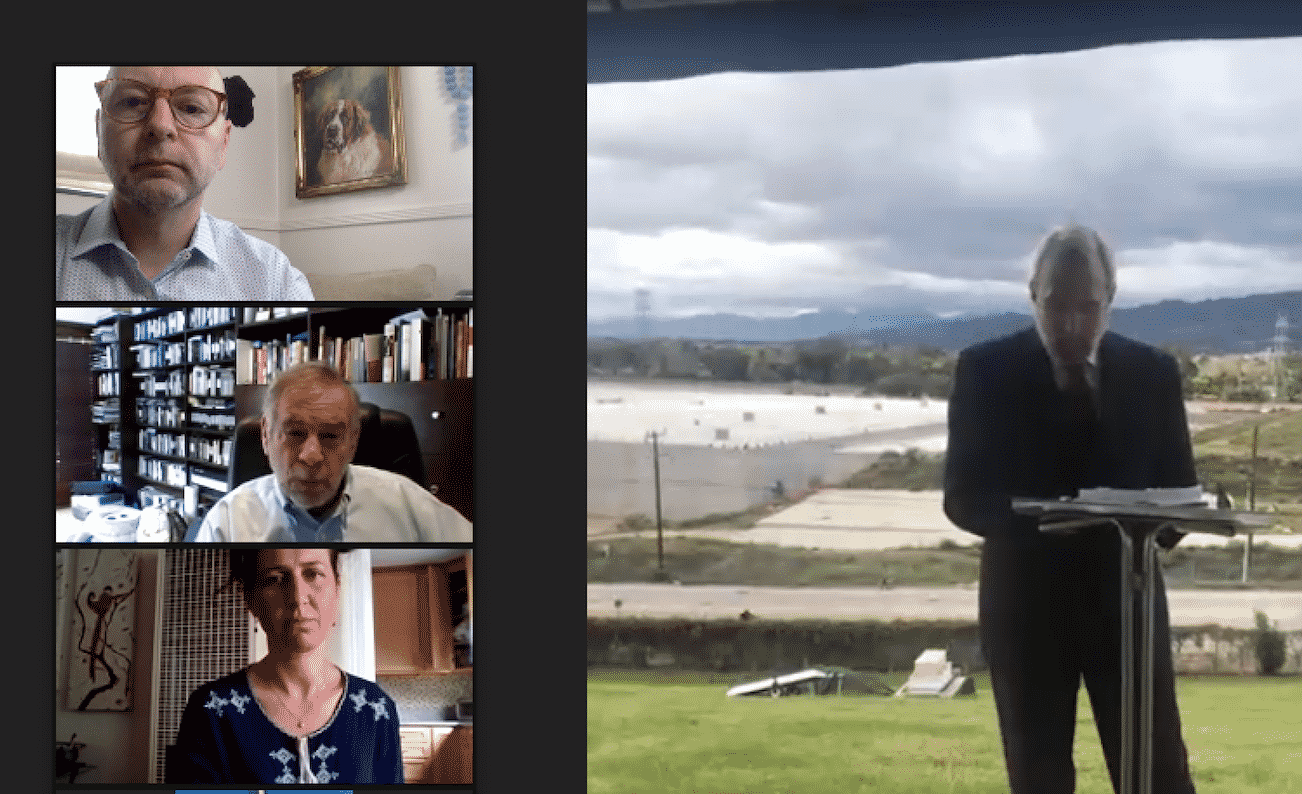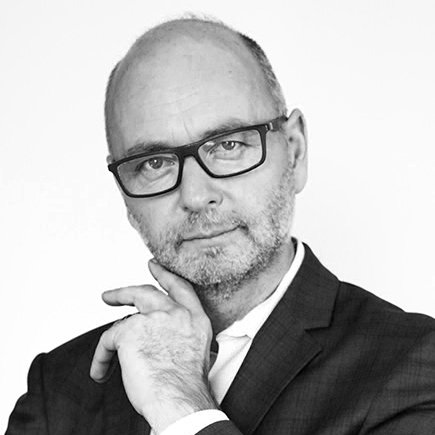 Funeral of Holocaust Survivor Dario Gabbai took place on April 5 2020, attended by over 50 people online, including speakers Stephen D. Smith, Michael Berenbaum and Warren Reingold. Photo courtesy of Stephen D. Smith.
Funeral of Holocaust Survivor Dario Gabbai took place on April 5 2020, attended by over 50 people online, including speakers Stephen D. Smith, Michael Berenbaum and Warren Reingold. Photo courtesy of Stephen D. Smith. There is an unseen public health crisis spreading as a consequence of the forced isolation most Americans are observing: loneliness. And it comes in many forms.
Dario Gabbai survived some of the worst horrors humanity has ever known. A Sonderkommando at the Auschwitz-Birkenau death camp, he was forced to herd his fellow inmates into the gas chambers, then pull out their tangled corpses and burn their lifeless bodies. Last week, Gabbai died in Los Angeles. He was 97. Although he had not contracted COVID-19, because visitors are no longer allowed in hospitals, he died alone.
Infectious disease experts tell us that social distancing will save innumerable lives. But it has also meant that for some Holocaust survivors, their final days have been without the comfort, dignity and solace they deserve from family and friends at their bedside. Because of their past experiences, they know the perils of loneliness. But they also know the redemptive power of connection, even when it’s at a distance.
My work as executive director of USC Shoah Foundation puts me in regular contact with people from among the world’s roughly 400,000 Holocaust survivors. As I have connected with those in my circle in recent weeks, I’ve found that they’re the ones providing the consolation. And they’ve offered wisdom I want to pass along.
My work as executive director of USC Shoah Foundation puts me in regular contact with people from among the world’s roughly 400,000 Holocaust survivors. As I have connected with those in my circle in recent weeks, I’ve found that they’re the ones providing the consolation.
Joshua Kaufman, who survived the Dachau concentration camp, called to say he’s ready and willing, day or night, to support survivors or veterans less fortunate than he is. Pinchas Gutter, who survived the Warsaw Ghetto uprising and the Majdanek death camp, reported his excitement upon reading a letter from a high school student who was moved by his memoir, “Memory in Focus.” Isolation is much less lonely when cheered by gratitude.
Ed Mosberg met his wife Cecile, during the Holocaust. She died a few weeks ago. For the first time in 67 years, Ed is alone — and now in government-imposed isolation. But his spirit remains undaunted. The annual March of the Living, which takes place in Poland and Israel each spring, has been postponed. Ed, who is 92, called me full of ideas about how he could still participate, as the organizers move it to a ‘virtual March of the Living’ online for Yom Hashoah, Holocaust Remembrance Day.
Decorated Army veteran Alan Moskin, now 93, helped liberate the camp of Gunskirchen as a member of the 66th Infantry. He, too, wanted to talk about the value of connection. “One good thing about this situation is that it brings out the best out of people,” he said. “People I don’t even know are calling to see if I need anything.” He lamented that it took “this crazy virus” to be reminded of how caring people can be. He is looking for ways to keep giving back. “I did not speak about what I saw for 50 years, but now they cannot stop me,” he said. “I have already spoken to 100,000 middle and high school students. I am antsy to get out and do more.”
That urge to connect, to tell their stories, to help others, to simply be together, is strong among survivors. We can all learn something from them.
“It’s a surprisingly inspiring time,” Daisy Miller, 82, told me over FaceTime, after requesting a few minutes to put on lipstick. “If nothing else, it gives us a deeper appreciation for the things we take for granted. We are a society so used to the superficial; we are not used to addressing deeper things.” For some people, she said, being alone for a single day is a crisis. This puts that in perspective.
Daisy survived the war in hiding. Today she is undergoing chemotherapy as part of a long battle with cancer. But, even so, she’s eager to support others. “I have Zoom,” she said, “and I want to do anything that I can to help.”
Paula Lebovics, 86, who survived Auschwitz as a 10-year-old, likewise spoke about the value of connection in times of strife. “Use this time to do good deeds, she advised. Reach out to people who are alone, because they need you.” She understands how meaningful connection is, the difference a phone call or Zoom chat can make: “Just to know you are valued is enough.”
Having experienced the worst of humankind, Holocaust survivors know the importance of its best. They remain inspiringly steadfast in their devotion to community. They are defiant that physical distancing must not mean harmful isolation — not for them, not for anyone.
“Most of all” said Paula, “If we know anything as Holocaust survivors, it’s that gam zeh ya’avor, this too shall pass.”
Stephen D. Smith is Finci-Viterbi executive director of the USC Shoah Foundation.























 More news and opinions than at a Shabbat dinner, right in your inbox.
More news and opinions than at a Shabbat dinner, right in your inbox.